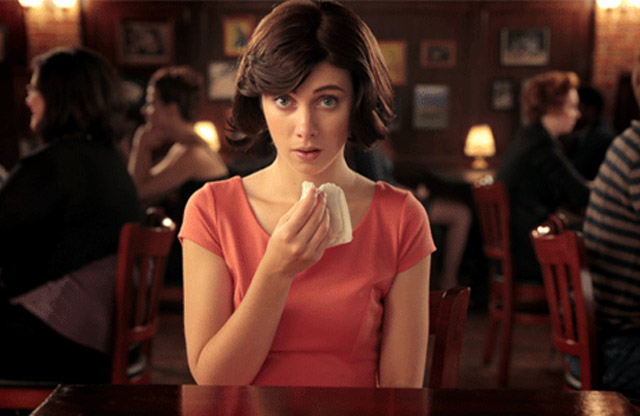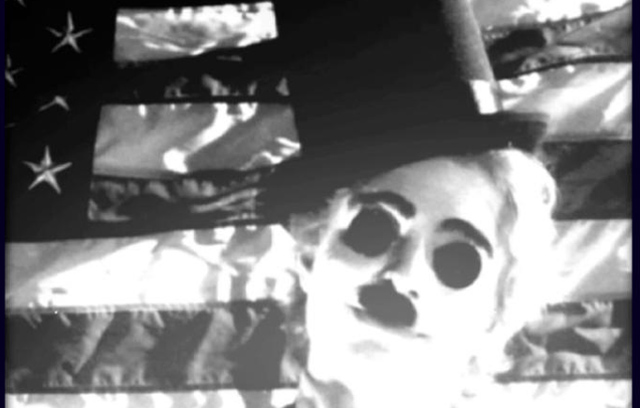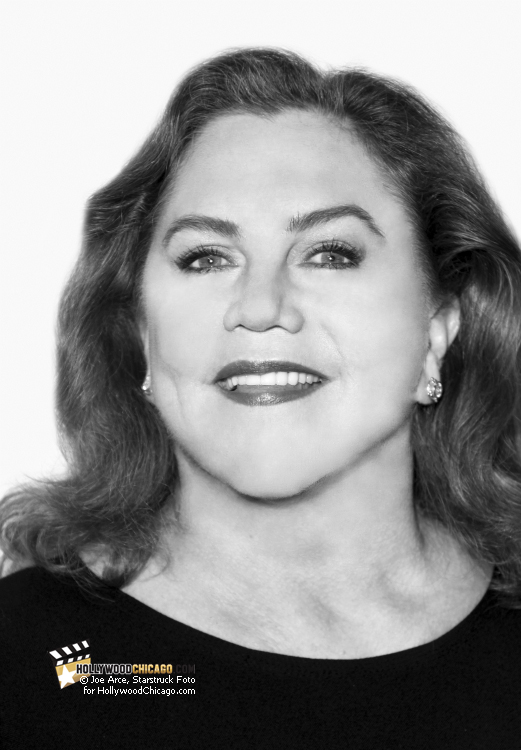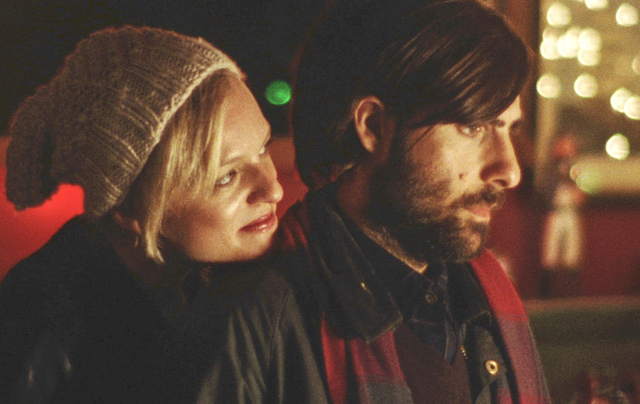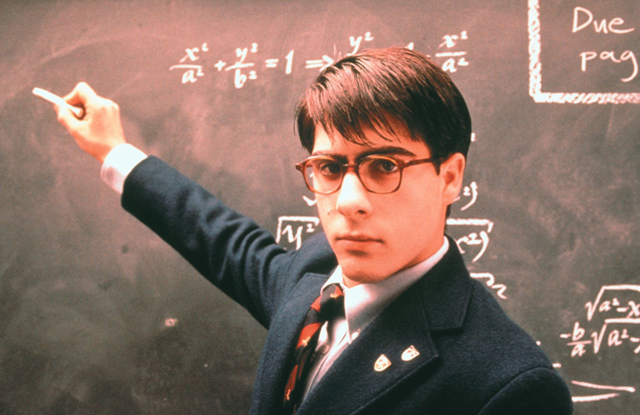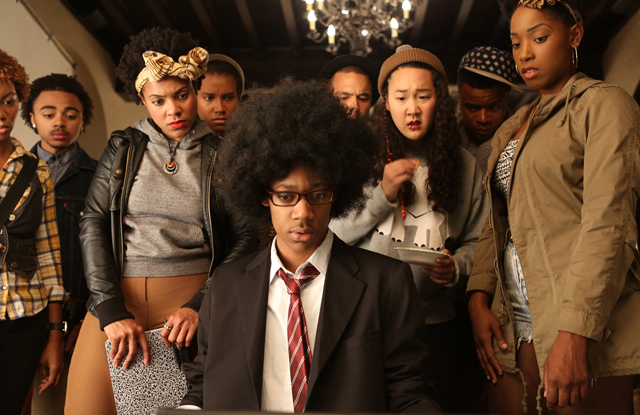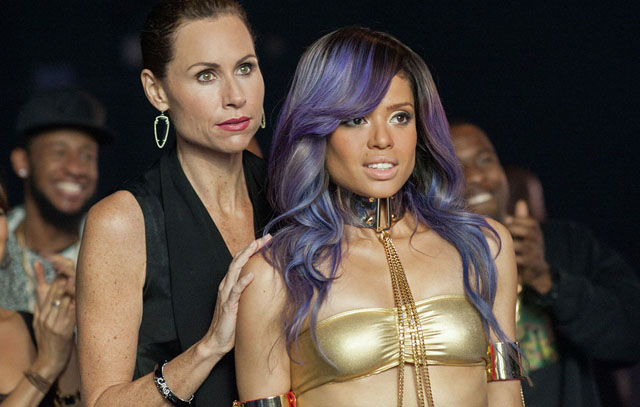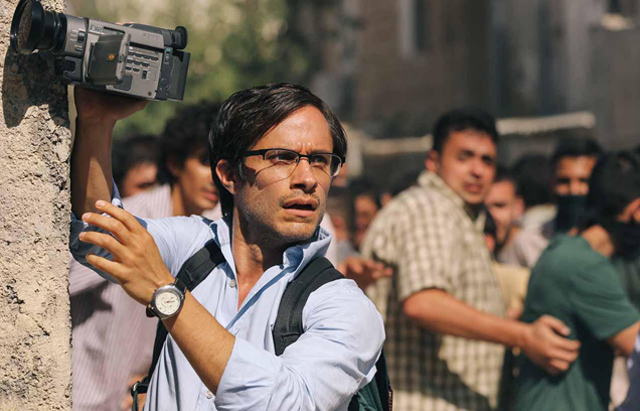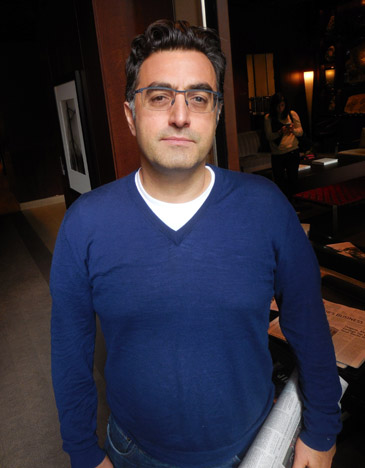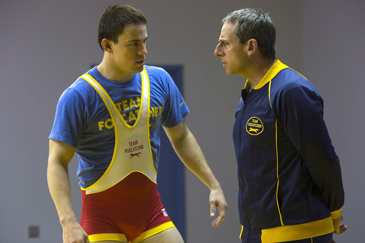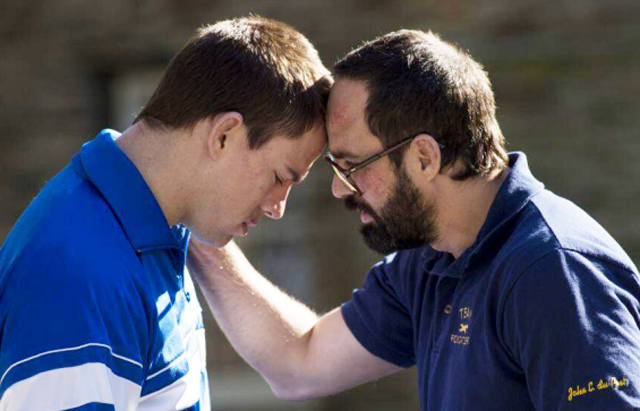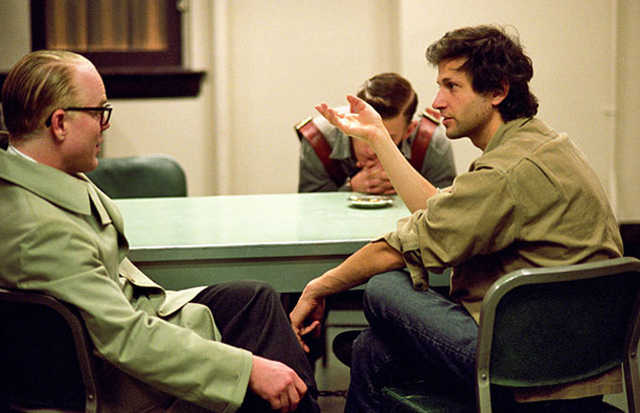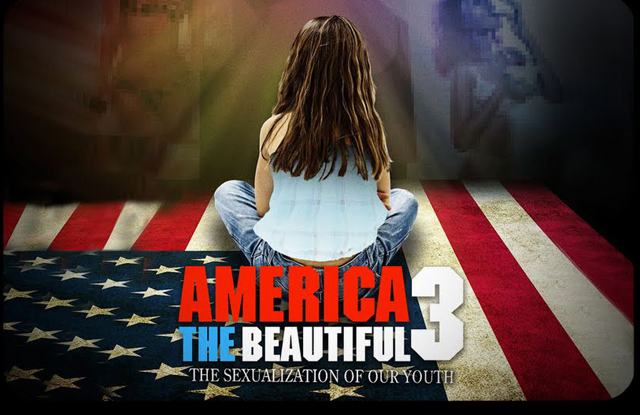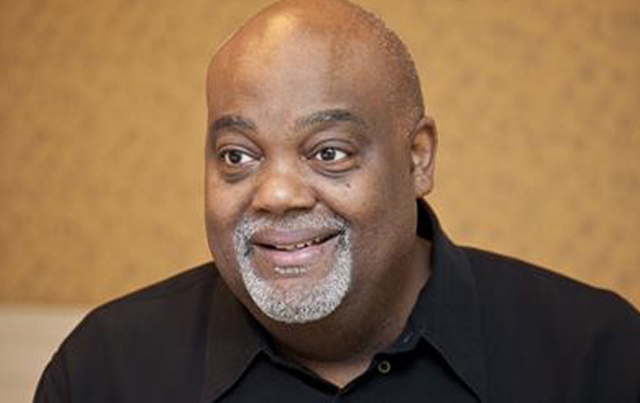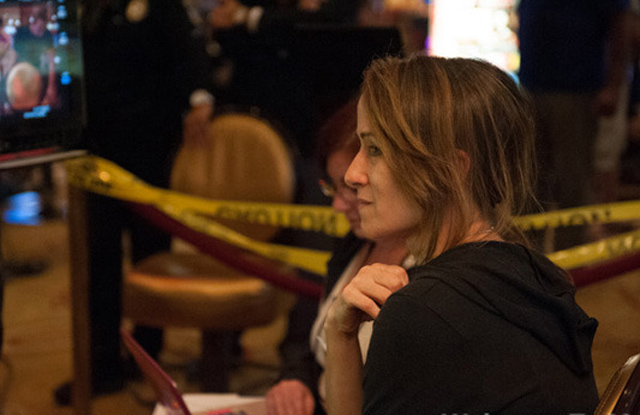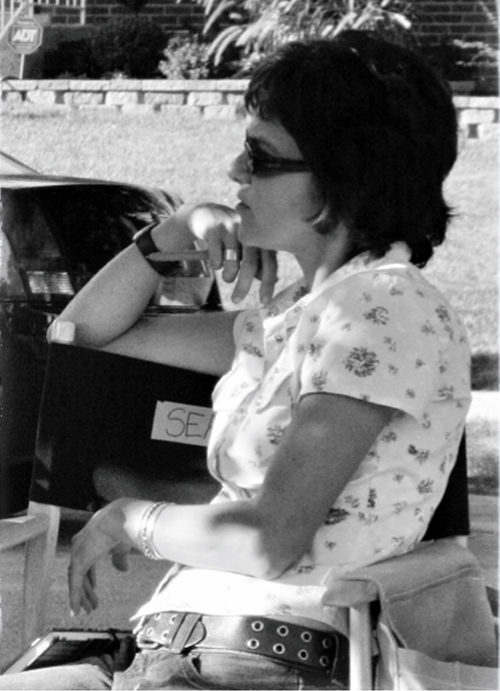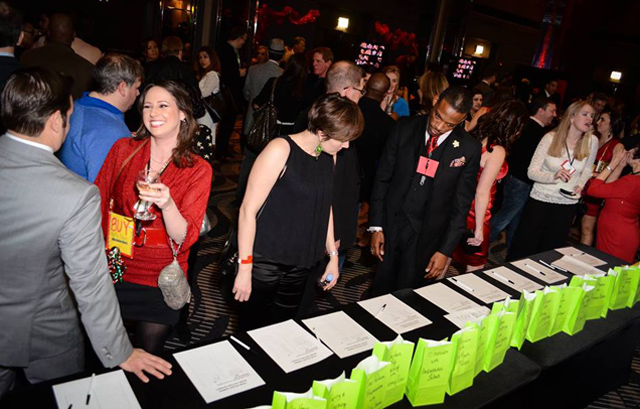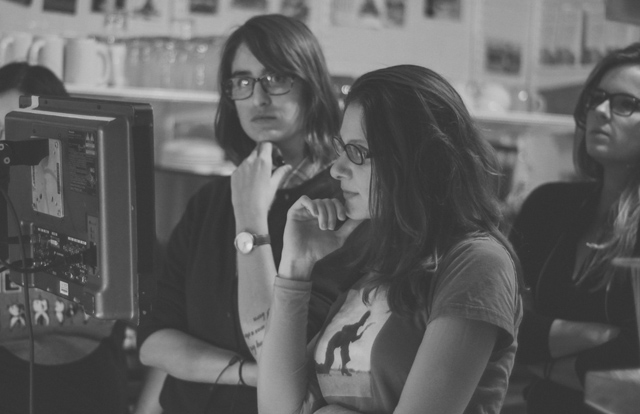CHICAGO– Simply one of the best movies of 2014, “Whiplash” has a tone, energy and sensibility all its own. Damien Chazelle wrote and directed the story of a jazz drummer prodigy at a prestigious New York City music college, tortured by his tyrannical instructor. The drama is scintillating, in rhythm with the natural story flow.

Director Damien Chazelle (center) On Set with J.K. Simmons for ‘Whiplash’
Photo credit: Sony Pictures Classics
Damien Chazelle’s script for “Whiplash” was on the so-called “black list” in Hollywood, the catalog of the best yet-to-be-produced screenplays in show business. He took a portion of the script and created a short, featuring J.K. Simmons as the profane and exacting jazz “professor.” This got him the green light for the feature film, so he took Simmons along for the ride, and gave Miles Teller the part as the drummer prodigy.
Chazelle sat down for an interview with HollywoodChicago.com. His unassuming nature belies an abiding passion, as he riffed on the path it took to get his remarkable film made, and the inspiration it took to get there.
HollywoodChicago.com: Since this began as a short film, what was the process from creating the short into evolving it into a feature?
Damien Chazelle: It was a back-and-forth process, because the first thing I had was the full length script. We took a stand alone scene and filmed it as a short. Pragmatically, it was a way to raise financing for the feature, but it was also a way to get my feet wet with the story. I worked with J.K. on the short, and we got to get to the bottom of his interpretation of the character, and I got to play around with the visual style. It was a do’s-and-don’ts process.
We premiered the short at the Sundance Film Festival, and met with financiers afterward. After we nailed down the money, not only did I have the full script, but also all that I had learned from doing the short film. I met my editor on the short, the team was pretty much in place, and we were ready to hit it once we began filming the feature.
HollywoodChicago.com: So much of the film hinges on the interplay between Simmons and Miles Teller. What did you detect in Teller that told you that he had both the verve and the vulnerability to play a jazz drummer prodigy?
Chazelle: Vulnerability was what I saw in him with ‘Rabbit Hole,’ his first film. But ever since in his career, he’s played more confident characters. Some people were wondering why I cast him, because they thought he would stand up to J.K. For one thing, he’s a lot taller.
HollywoodChicago.com: He seems smaller in the film…
Chazelle: Movie magic. [laughs] Miles really has a star aura as well, but I could never let go what I saw in him in ‘Rabbit Hole,’ so I knew he still had it. I knew we could do the full arc – we could go from ‘Rabbit Hole’ vulnerability to the kind of cockiness he needed by the end of the film, just a darker version of his natural confidence.
HollywoodChicago.com:J.K. Simmons is a character actor that has risen to prominence in his later career. How do you think you used him differently than what he is known for in the marketplace?
Chazelle: First it was about giving him more of a platform. He’s the type of actor that dominates even small scenes, so here he was able to build a character over the course of a full film. Because he has developed a skill set from his character work in film, TV and stage, he came in and delivered. I wanted him to be larger than life and iconic, and looms over the whole atmosphere. It became clearer rather quickly that not only was he the right fit, but nobody else could do it better.
HollywoodChicago.com: How was Miles Teller able to convert himself from a band drummer to potentially one of the greatest jazz drummers of all time? What tricks or certain energies did you have to manage to accomplish this characteristic?
Chazelle: The first thing was to identify how much he knew about drumming, which turned out to be not that much. After that, it was a crash course in jazz drumming, and worked with Nate Lang, who played the other drummer Carl in the film. They became a duo, because Nate is a real drummer. But Miles was also a quick study, and picked up the rhythms from watching videos of old timers like Buddy Rich. He wanted to get the ‘look’ correct, as much as anything. As soon as he got that, everything fell into place.
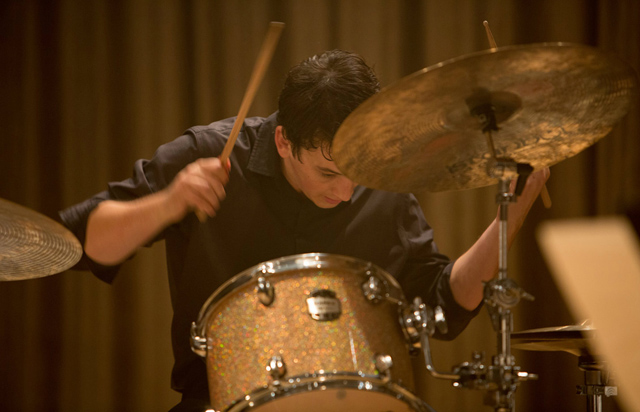
Miles Teller Portrays the Prodigy in ‘Whiplash’
Photo credit: Sony Pictures Classics
HollywoodChicago.com: The legendary Charlie Parker, the jazz saxophonist nicknamed ‘Bird,’ was the muse and spirit of the project. Why do we as human beings seek the perfection behind Parker, in your opinion, and why was this perfection ultimately to doom Parker himself?
Chazelle: There is that romantic idea behind the artist who is destroyed by their own art. I think issues surrounding Parker are a bit more complicated, but he remains a mythic figure because how his life was, and how he died. Certain elements of his life seem to personify the way J.K.’s character wants music to be, in the sense that you give all to it, your heart and soul, even though it may f**k up everyone else in your life and kill you.
Also Charlie Parker was forged by fire. He just didn’t roll out of bed and become Charlie Parker. There was a process of being broken down and built back up. It was nice also to have the film’s figurehead not be a drummer, it was more about universally being a musician.
HollywoodChicago.com: The script for ‘Whiplash’ was on the ‘black list’ of Hollywood, as one of the best un-filmed screenplays. What do you think of the psychology of an industry in which such a list exists?
Chazelle: I think the black list is one of the best things to happen to Hollywood in the last decade or so. We live in the age of the franchise from the bigger studios, and the black list helps to value more original content. It doesn’t mean that every script that lands on the black list is a masterpiece, but what it does is shine a spotlight on potential and creative content – writers at their desks writing something. There is something very democratic about that, yes there are the Aaron Sorkins and Quentin Tarantinos on the list, but you also have total newbies with their first script.
HollywoodChicago.com: What is most ‘American’ about ‘Whiplash’? What characteristics about the dreams of this country are played out in the psyche and interplay of Andrew’s [Teller] quest morphed with Fletcher [Simmons] and his destiny?
Chazelle: That’s meaty. [laughs] It’s a film about the quintessential American art form, jazz, but it’s also about the idea – that is very American – which is excellence at all costs. If you have to reduce America to a nutshell, it is that idea, both in the sense of what is good about it and what’s wrong with it. It’s a country that you can pull yourself up, go rags-to-riches, and make it if you just work hard enough. That’s so motivational and has become a big part why this country has produced so much in a relatively short time.
But on the flip side, that does produce less compassion in this country. If you are seen as someone who didn’t achieve the dream, then it is your fault. There is the feeling that the burden is entirely on you, and not much of a sense that the state or your fellow brothers and sisters are actually helping to support you. There is social damage when success is all that matters.
HollywoodChicago.com: Jazz is dying, according to the J.K. Simmons character, yet it is celebrated as a central music theme in the story. What are we losing in America if Jazz continues to expire in the background, and how can ordinary citizens appreciate the Jazz culture without intimidation?
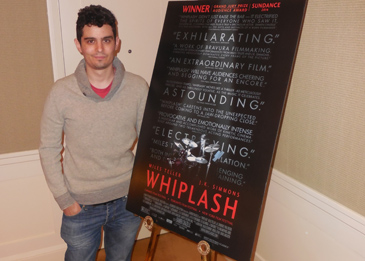 Damien Chazelle in Chicago, October 9th, 2014 Photo credit: Patrick McDonald for HollywoodChicago.com |
Chazelle: The main problem with Jazz is that it’s a bit like old movies, it becomes encrusted. From what I observe, younger people listen to Jazz because they feel like they’re ‘suppose to,’ and not because they are fans. My hope is that people can find their own way to the music, and we have to provide an avenue to do that. If it’s not a personal journey to the art, the appreciation can’t be taught. You have to find what it means to you.
Jazz isn’t that different from other forms of visceral music, like rock or dance music. To me, it’s not the type of music where you’re sitting in dark club, dressed in black, and sipping martinis. [laughs] To me, it’s a joyful, angry, visceral music of high energy and high emotion, like punk rock.
HollywoodChicago.com: You wrote the screenplay for ‘The Last Exorcism, Part 2.’ How were you able to go beyond ‘The Last Exorcism,’ to create the ‘last last’ exorcism? Basically, what is it like to do a script assignment like that?
Chazelle: It was my entrance into Los Angeles, as a writer for hire. I did a lot of rewrite work in those days, most were not made, but this one was. And ironically, not one word I wrote made the final screenplay, but I got the credit. [laughs] I was just starting out, and the people I worked with on the project were fun. It felt like an internship, but it’s fun to take something that’s mapped out and formulate it.
HollywoodChicago.com: Who are your director heroes, and how did you morph those influences into the unique feel and signature of ‘Whiplash’?
Chazelle: There are directors that don’t watch movies and just are natural storytellers. But there are others, like me, who approach it as a fan and their love for what has come before them in cinema history. Martin Scorsese is a perfect example of that type of director, as his movies are tributes to other movies. I love movies, and the stuff that it’s made out of just seeps into me.
 | By PATRICK McDONALD |
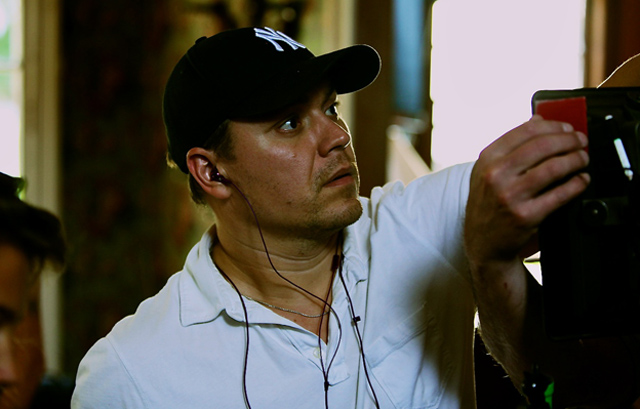
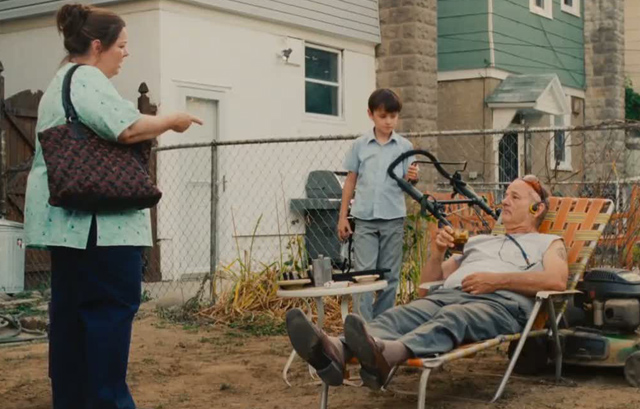
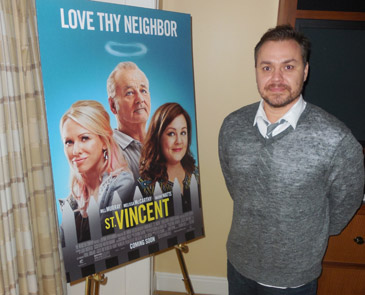


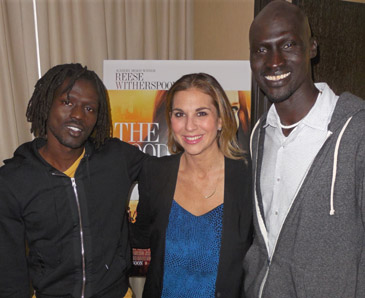
 Lonnie Edwards, Director of “Parietal Guidance”
Lonnie Edwards, Director of “Parietal Guidance”

